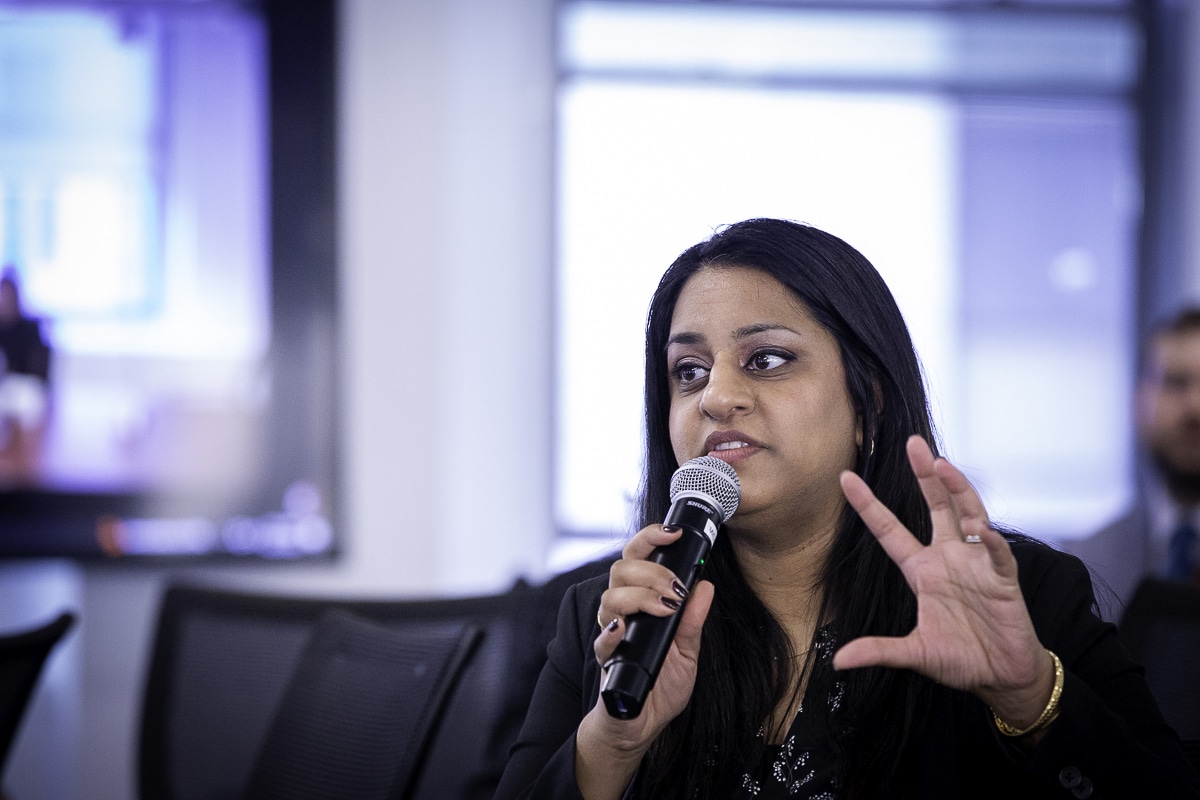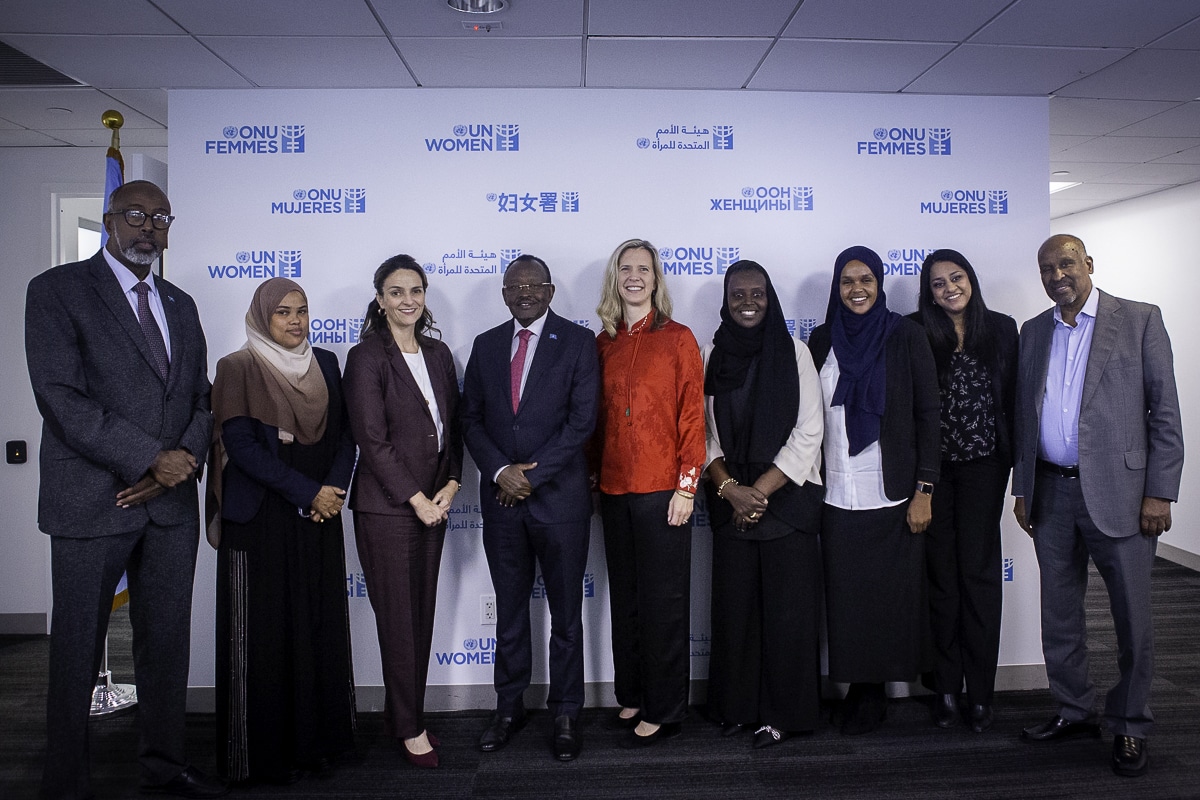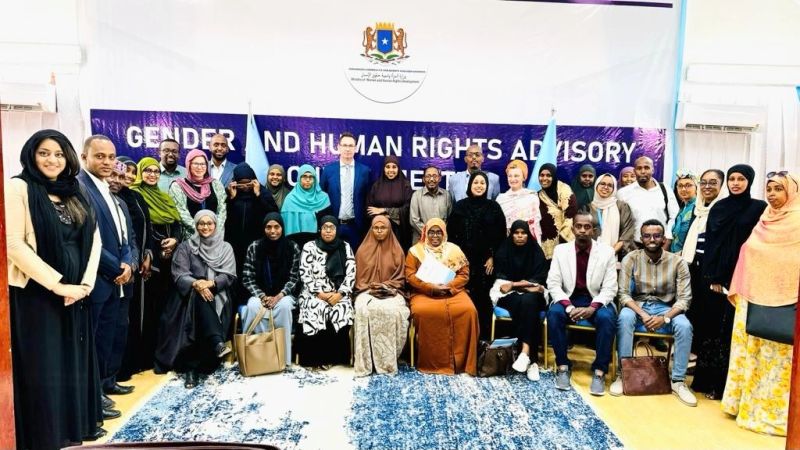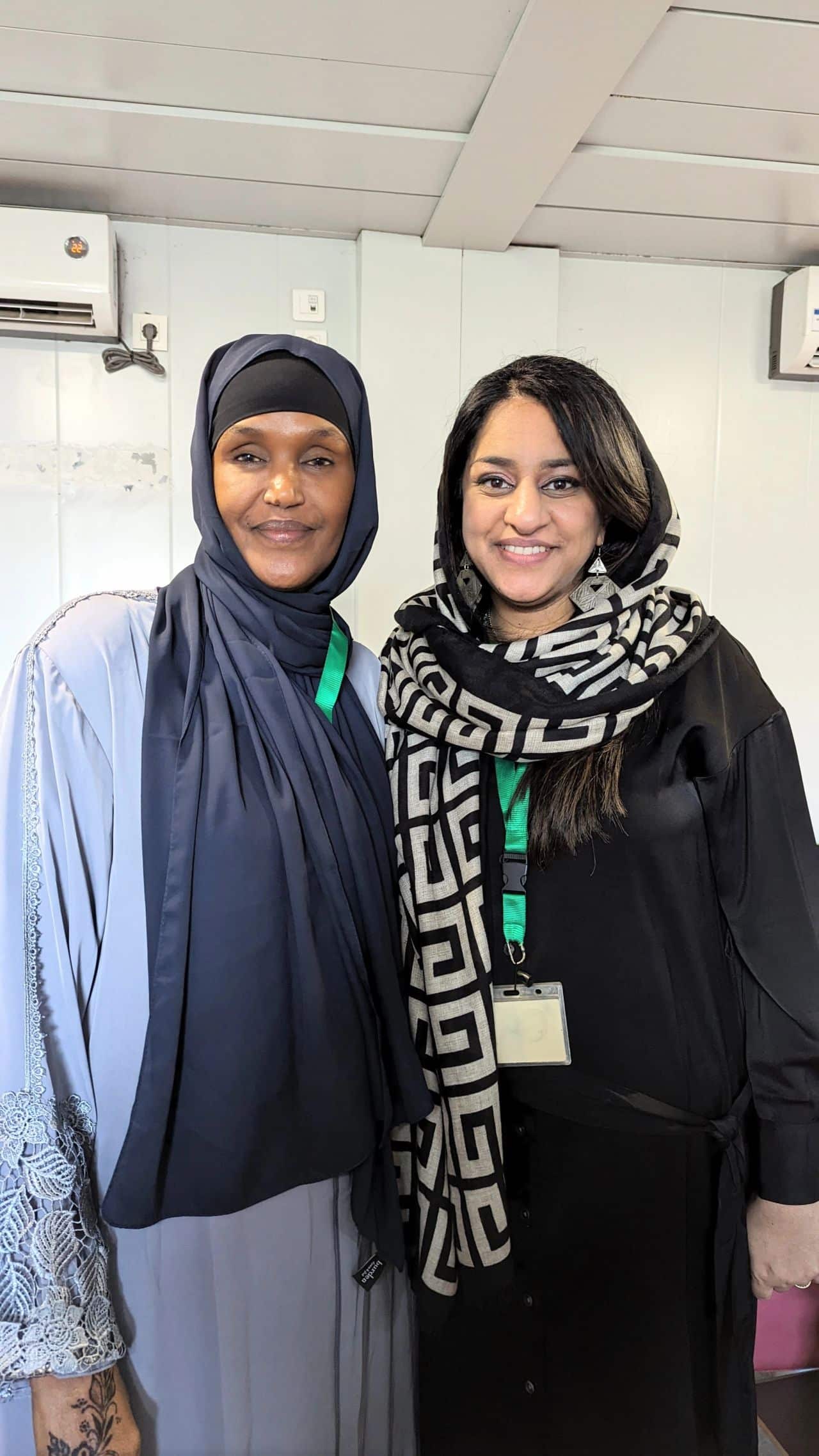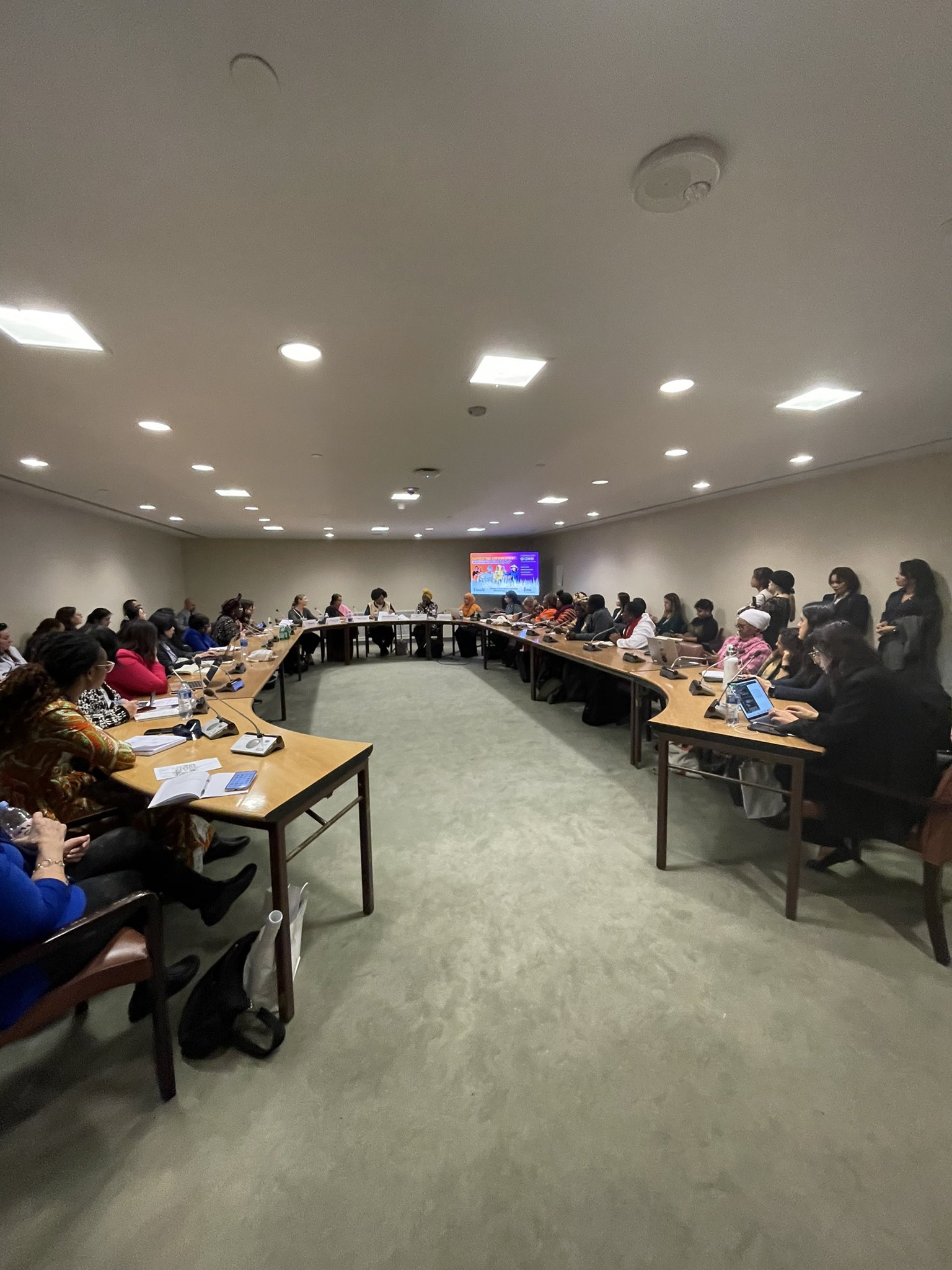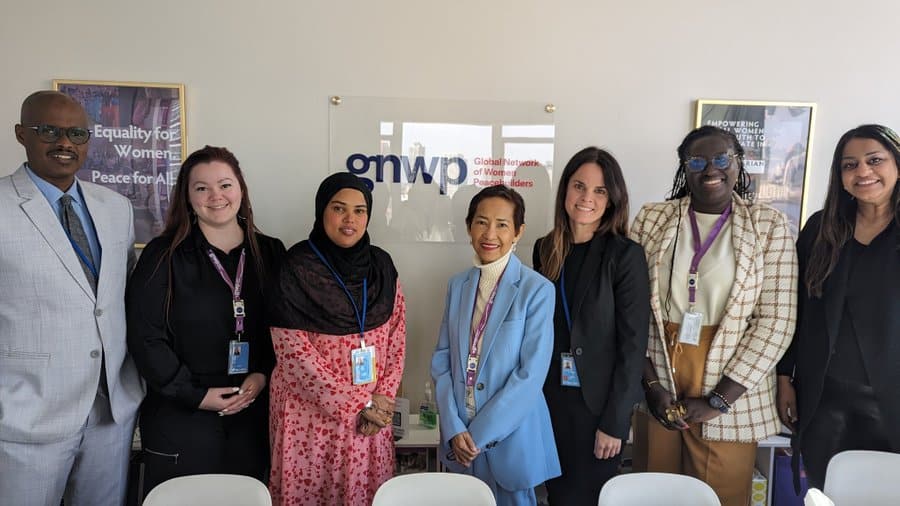Supporting the Women, Peace, and Security Efforts in Somalia - Interview with Urooj Mian
In collaboration with Somalia’s Ministry of Women and Human Rights Development (MoWHRD), Canada’s Technical Assistance Partnership (TAP) and expert Urooj Mian are advancing the Somali Women’s Charter and the principles of UN Security Council Resolution 1325. This initiative addresses critical issues facing Somali women, including gender-based violence, access to justice, peacebuilding, and responses to climate and humanitarian crises. By evaluating national and local action plans and leveraging global best practices, the project seeks to strengthen implementation strategies and empower women’s participation in peace and security efforts.
This interview with Urooj Mian explores her work in Somalia, her experiences, and how they align with the “16 Days of Activism Against Gender-Based Violence”.
Q:What inspired you to work on Women, Peace, and Security (WPS) issues, and how did this lead to your collaboration with Somalia’s Ministry of Women and Human Rights Development (MoWHRD)?
I can’t say I was intentionally “inspired” to work on Women, Peace, and Security—it’s more accurate to say the topic found me, and I embraced it. My first exposure to the 1325 Agenda was during meetings at the United States Institute of Peace (USIP), where I joined a small group of international practitioners, experts, and leaders to discuss issues related to sexual violence in conflict. I am privileged to count some of the ‘mothers of WPS’ among my colleagues, mentors, and friends.
At one point, I was asked by the WIIS Global president to establish Women in International Security (WIIS) Canada. As the first President and Executive Director of WIIS Canada, I found myself fully immersed in WPS work. One of the most meaningful experiences during this time was leading the first-ever national campaign for the 16 Days of Activism Against Gender-Based Violence in Canada. This initiative featured at least one event every day, ranging from community-level activities to national-level events in Parliament and across the country. I chaired the campaign’s Steering Committee for two years, and it was a deeply rewarding, community-building effort.
The campaign’s impact reached far beyond Canada. Women’s groups from different countries, including East Africa, contacted us to share that our work inspired them to host similar events. At that time, social media was still a relatively new tool for advocacy and awareness campaigns, and it helped amplify our efforts in ways we hadn’t imagined.
Today, Women, Peace, and Security is simply a part of my life. I’ve taught courses on the subject, conducted audits of institutions against WPS obligations, and continue to engage with the agenda in a variety of ways. This includes supporting national action plan (NAP) development and implementation, both in Canada over multiple iterations and most recently in Somalia, where I’m assisting the Ministry with operationalizing their own NAP.
Q:Can you share key highlights of the Somali Women’s Charter and how it connects to the goals of United Nations Security Council Resolution 1325? Why should Canadians care about this? What should they know about the current political context? Could you also speak to the role of Canada’s diplomatic mission in Nairobi?
The Women, Peace, and Security (WPS) Agenda is obligatory for United Nations Member States. However, the persistent challenge lies in figuring out how to truly implement these obligations and ensure they are effective. The WPS Agenda is fundamentally a peace agenda, but it also includes essential components of empowerment and justice. A current trend within the agenda is to “localize” it—applying it within local contexts, both within Member States and beyond.
Somalia presents a uniquely complex environment. I would say it has very cleverly and uniquely combined the Somali Women’s Charter, which promotes women’s equality, with its commitments to WPS into one National Action Plan. As expert practitioners and researchers, we know that a fundamental element of durable peace is inclusive peace—peace built on gender-sensitive approaches that recognize and address differing vulnerabilities. We also know that gender equality within a society is a precursor to achieving lasting peace.
In many post-conflict settings, women often make up more than half the population, and they are frequently the stakeholders most critical to implementing road maps and plans for sustainable development and peace. Somalia is no exception, even though its context remains unpredictable, with security and humanitarian challenges varying significantly across regions. The women peacebuilders in Somalia, however, are ready. I have often said that Somali mothers are some of the fiercest women I have ever encountered, and this engagement has only reinforced that belief.
Canada has recently been a key supporter of Somalia’s efforts to take ownership of and establish road maps to address these issues. Canada’s role includes helping to create communities of practice and providing support that I believe will extend far beyond the immediate contributions.
Q:How is the TAP initiative ensuring Somali women’s meaningful participation in state-building, peacebuilding, and reconciliation processes? Can you share insights from your experiences in New York, Somalia, and Nairobi?
My engagement with the TAP initiative was highly participatory. This approach ensured ownership and empowerment for the beneficiaries, enabling them to take meaningful responsibility for what was produced. By actively listening to voices from a diverse range of stakeholders—including civil society organizations, representatives of Member States, and the Ministry itself—I was able to translate my findings into recommendations and a final strategy that was contextually relevant, evidence-based, and actionable.
For the first time, we also supported a Somali delegation at international forums, amplifying the voices of Somali women leaders. This included participation in events such as the Commission on the Status of Women meetings and WPS Week in New York, as well as regional WPS meetings in Nairobi. Through these engagements, Somalia’s Ministry of Women and Human Rights Development (MoWHRD) is increasingly being recognized as a committed actor in enacting its obligations under the WPS agenda.
Q:What has been the most rewarding aspect of your work on this initiative, and how do you see it contributing to long-term peace and gender equality in Somalia?
The most rewarding aspect of my work has been the focus on capacity development and empowerment. There is now a newfound space that Somali representatives are confidently claiming as their own, enabling them to champion their country’s work on the WPS agenda. This includes taking leadership roles in international forums as advocates for their successes. Remarkably, they are even being approached for insights into best practices related to the development and implementation of their commitments to ending sexual and gender-based violence (SGBV) and advancing gender equality and peace. Witnessing this transformation in such a short period has been both humbling and deeply rewarding.
Throughout my engagement, I have emphasized that sharing best practices should be a reciprocal process, not a prescriptive one. The success Somalia has achieved in its complex context offers valuable lessons for the global community. Collaborative efforts aimed at achieving positive change can benefit greatly from learning about the strategies that have worked in Somalia. It’s a testament to the power of mutual exchange and collective commitment to progress.
For more information on this initiative
